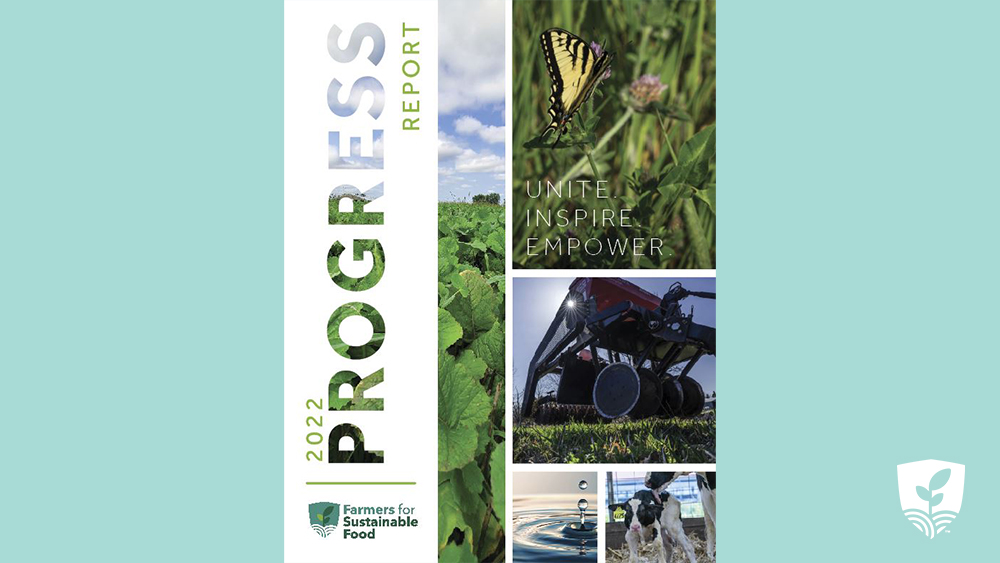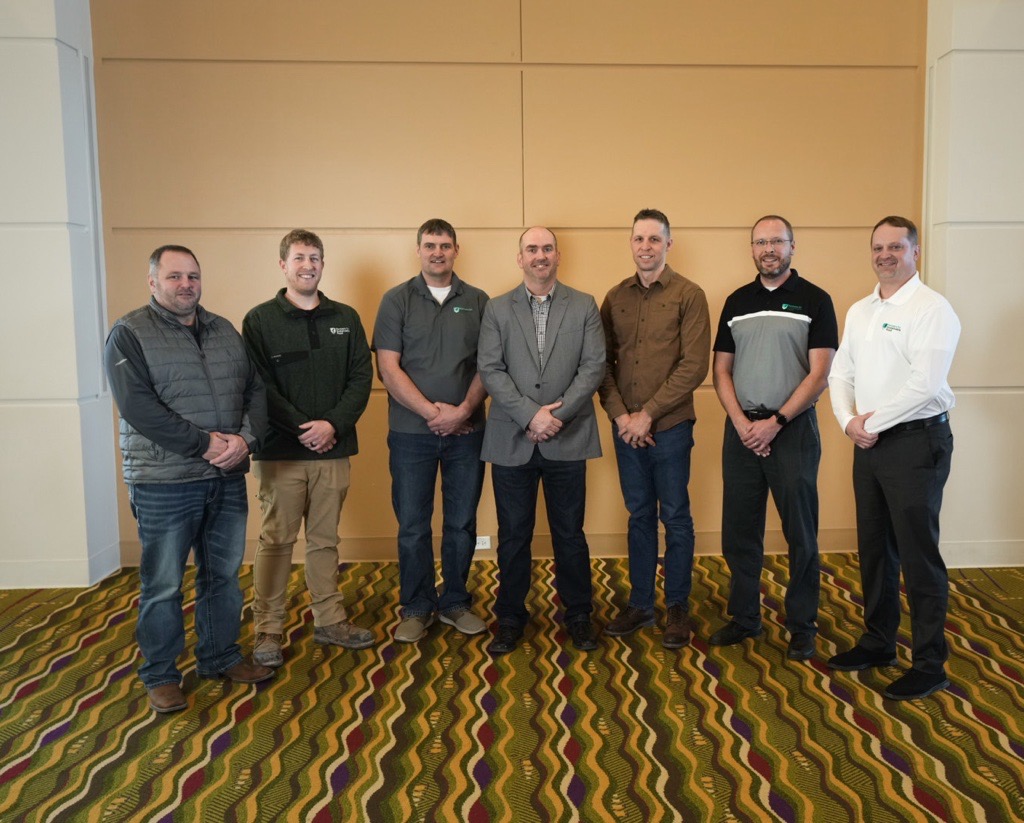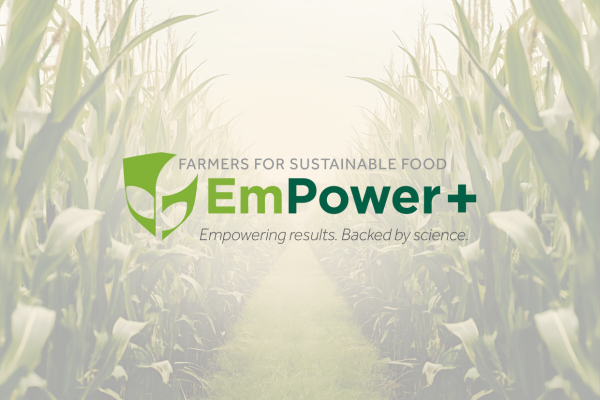Farmers for Sustainable Food showcases positive impact
Progress report features broad range of activity and achievements
Farmers for Sustainable Food, a collaborative, industry-supported effort to promote and support farmer-led solutions to environmental challenges, released its 2022 progress report today, showcasing an expanding range of work and a deepening commitment to conservation.
The nonprofit organization of food system partners grew to 51 members in 2022, up 11 from 2021. Through partnerships with seven farmer-led conservation groups across Wisconsin, FSF supported 304 farmers representing 351,568 acres and 213,805 head of livestock.
 “Our members strive to act boldly, innovate broadly and implement creatively to protect and preserve natural resources daily,” Todd Doornink, FSF board president, said. “We are thrilled to showcase their incredible achievements over the past year.”
“Our members strive to act boldly, innovate broadly and implement creatively to protect and preserve natural resources daily,” Todd Doornink, FSF board president, said. “We are thrilled to showcase their incredible achievements over the past year.”
Farmer-led groups
Each year, FSF documents conservation practices implemented by members of the farmer-led groups it supports and analyzes the potential impact on the environment.
Key results from 2022:
- Reduced greenhouse gas emissions by 55,585 tons. This equals the emissions from 11,221 cars driven for a year.
- Reduced sediment from leaving farm fields by 365,814 tons. One dump truck can carry about 10 tons of soil.
- Reduced 480,592 pounds of phosphorus from leaving farm fields. One pound of this nutrient that reaches a waterbody can feed 500 pounds of algae.
Sustainability projects
FSF’s nationally recognized Framework for Farm-Level Sustainability Projects continues to serve as a guide to help groups document and communicate the sustainability of farming practices to other farmers, local communities, the agricultural supply chain and regulatory agencies. FSF supported four projects in 2022:
- Lafayette Ag Stewardship Alliance completed the third year of a five-year project involving 15 farmers in southwestern Wisconsin who are measuring on-farm sustainability and the financial impact of conservation practices.
- Peninsula Pride Farms in northeastern Wisconsin released its first-year results of a three-year project. Eleven farm members are evaluating on-farm sustainability metrics to better understand the impact of conservation practices on their cropland and local watersheds.
- Crave Brothers Farm in southern Wisconsin completed an analysis of three years of data to assess how farming practices affect local stream water quality.
- In partnership with Edge Dairy Farmer Cooperative and Zoetis, eight farms participated in a genomic study to demonstrate how focusing on genetic improvement in dairy cattle leads to profitability and sustainability.
Climate-smart initiative
The FSF team supported Edge Dairy Farmer Cooperative on a proposal for a grant from the U.S. Department of Agriculture’s Partnerships for Climate-Smart Commodities program.
- FSF, Edge and more than a dozen project partners will be reimbursed up to $50 million for farmer-focused sustainability projects.
- The initiative aims to help farmers implement sustainability projects that reduce their carbon footprint, document the improvements and demonstrate value in the supply chain.
- The program will expand the use of FSF’s farmer-led sustainability project model.
“Last year’s accomplishments by FSF and its members and partners were truly remarkable,” Doornink said. “The deep commitment to our mission will continue to carry our important work forward.”




